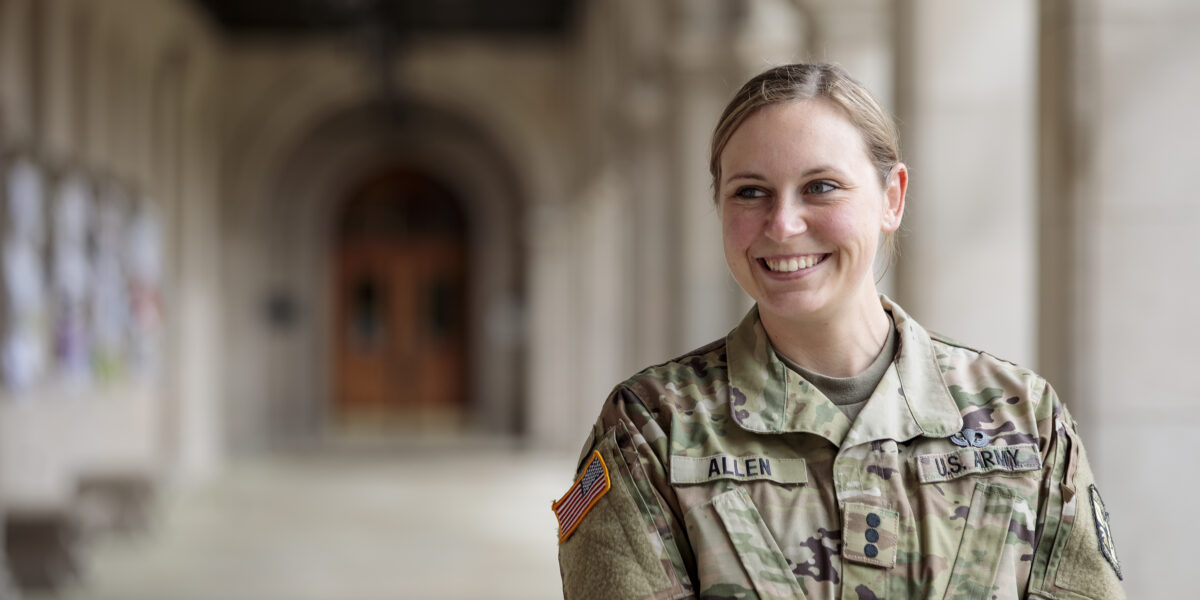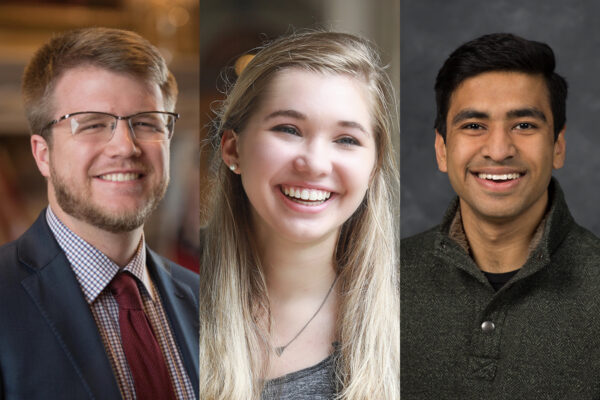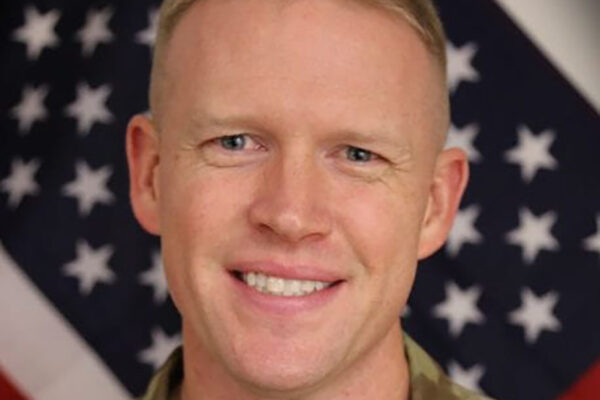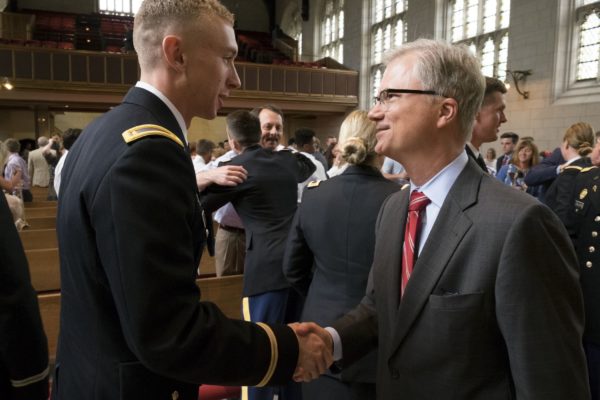Growing up in St. Charles, Mo., Haley Allen knew one thing — she wanted to join ROTC so she could be an officer in the U.S. Army. Where she went to college didn’t particularly matter to Allen. Nor did her major.
“I just knew that I wanted to be in the Army,” said Allen, who graduates this month from Washington University in St. Louis. “Being part of team, serving my country, traveling — all of those things appealed to me. But mainly, I saw the Army as an extension of my interest in community service.”
 As part of the ROTC application process, Allen was required to interview at a local battalion which, in her case, was the Gateway Battalion at Washington University. Though Allen grew up just 20 miles west of campus, she knew little about the school. Lee Rodriguez, the battalion’s admission officer, sold her on both Washington University and the Gateway Battalion.
As part of the ROTC application process, Allen was required to interview at a local battalion which, in her case, was the Gateway Battalion at Washington University. Though Allen grew up just 20 miles west of campus, she knew little about the school. Lee Rodriguez, the battalion’s admission officer, sold her on both Washington University and the Gateway Battalion.
“After I got accepted with a ROTC scholarship, he called every week trying to convince me to come here,” Allen said. “I’m glad he did. The Gateway Battalion became my family.”
Allen decided to major in psychology because, well, why not? But then the summer after her first year, she traveled to Tanzania for the ROTC Cultural Understanding and Leadership Program (CULP). There, Allen learned Swahili, which is considered a strategic language by the Army. She also studied the nation’s customs and politics, experienced her first Ramadan and stayed with host families across the East African nation.
“We lived everywhere from a tourist area near the Serengeti to a small hut made from sticks and mud,” Allen said. “It was a huge culture shock but I loved getting to know people with a totally different world view and life experiences.”
Allen returned to Washington University eager to learn more about East Africa’s complicated history and current role in geopolitics. She enrolled in Swahili and switched her major to international studies in Arts & Sciences.
“I saw a clear intersection between my academics and my experiences in ROTC and how, together, they could advance my work as an officer,” said Allen, who returned to Tanzania for a second summer. “A big part of the Army’s mission is to work with local people to build their capacity to fight terrorism and maintain peace in their countries. Good intentions can lead to bad consequences if you don’t respect cultural norms and understand history.”
Allen’s interest in East Africa extended beyond the pragmatic. She loved the language, the customs and spirit of the people. She started to volunteer as a teacher’s aid at Nahed Chapman New American Academy in St. Louis Public Schools, and taught English to a Somali woman through the Immigrant and Refugee Women’s Program.
“It was a way to give back after I received so much from people I met in Africa,” Allen said. “I didn’t realize how many immigrants are in our city and the difficulties they face. I wanted get involved and help them feel welcome in our country.”
Allen also taught English at a girls’ school in Kenya her junior summer as a Civic Scholar for the Gephardt Institute for Civic and Community Engagement. She believes those experiences will help her wherever she is posted. After graduation, Allen will learn to fly helicopters at the U.S. Army Aviation Center of Excellence at Fort Rucker, Ala. She hopes to then serve in Africa, though she may be assigned to the Middle East, Asia or here in the United States. Allen will be prepared.
“The world is a big place with so many languages and so much history,” Allen said. “I can’t be an expert in it all. But I have learned the power of rapport and showing that you care.”



